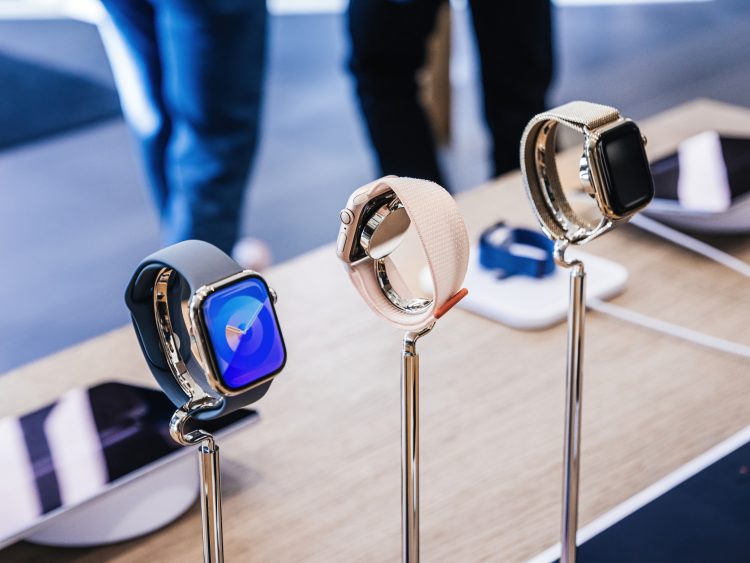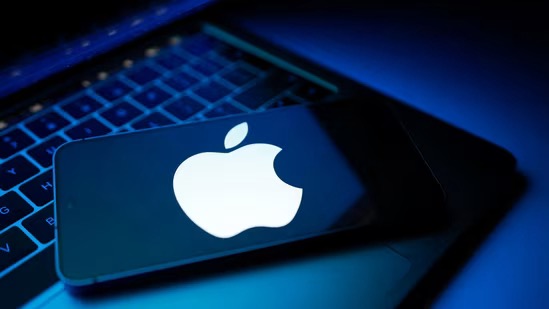A U.S. federal court has ordered Chinese smartphone maker OPPO to hand over internal documents to Apple Inc. in a growing legal battle over alleged trade-secret theft. The case, which has drawn international attention, revolves around accusations that confidential Apple Watch technology was stolen and shared with OPPO through a former Apple engineer. The decision marks a significant step in what could become one of the most consequential intellectual property disputes between two of the world’s biggest smartphone brands.
The Core of the Dispute
The legal clash began earlier this year when Apple filed a lawsuit accusing OPPO and one of its subsidiaries of unlawfully obtaining trade secrets related to its wearable technology. According to Apple, a former employee who had access to sensitive hardware and sensor research for the Apple Watch allegedly transferred proprietary materials before leaving the company.
Apple claims the engineer took several confidential files from its secure servers, including documents detailing sensor calibration, hardware testing, and design methodologies. The lawsuit alleges that soon after joining OPPO, the engineer presented a slide deck to OPPO’s internal team that bore striking similarities to Apple’s internal research frameworks and processes.
Apple argues that these actions constitute a direct breach of confidentiality agreements and that OPPO knowingly benefited from information that was obtained through unauthorized means. OPPO, on the other hand, has strongly denied any wrongdoing, maintaining that its internal work is based entirely on independent research and not on stolen intellectual property.

The Court’s Directive
After weeks of back-and-forth between legal teams, the U.S. District Court handling the case sided with Apple’s motion to compel OPPO to produce documents. The court order requires OPPO to hand over all internal communications, research records, and technical files related to sensor technology and smartwatch components that overlap with Apple’s claims.
According to the ruling, OPPO must begin producing the requested documents immediately and complete the process within a set timeframe. The court also warned that failure to comply could result in sanctions or further legal penalties.
Apple has argued that OPPO has been slow in responding to requests and may have withheld key materials. The company urged the court to ensure full transparency, insisting that the withheld documents are essential to proving its case. The court’s order reflects growing concern that some materials could have been deleted or altered since the lawsuit began.
OPPO’s Position and Defense
In its defense, OPPO insists that it has cooperated in good faith and that there is no evidence linking its internal research to Apple’s proprietary information. The company contends that its smartwatch development programs were established years before the engineer in question joined OPPO and that any similarities in research methodology are coincidental and stem from common industry practices.
OPPO’s legal team has also pushed back against Apple’s broader requests, calling them “overreaching” and claiming that some of the demanded materials include unrelated corporate data. Nonetheless, the company has stated that it will comply with the court’s order and share the required documents within the prescribed deadline.
The Chinese smartphone maker is also said to be conducting an internal audit to ensure that none of Apple’s confidential data was ever used in its product development. In a brief public statement, OPPO emphasized its commitment to ethical research and international intellectual property laws.
Apple’s Broader Strategy
For Apple, this case is part of a wider effort to protect its technological edge in a highly competitive market. The company has historically guarded its innovations with exceptional secrecy, particularly in areas such as sensors, chips, and health-related technology—sectors that have become increasingly vital to its product lineup.

In recent years, Apple has intensified its legal actions against individuals and companies it suspects of intellectual property theft. The company’s leadership views such incidents as threats not only to its business interests but also to its culture of innovation. Legal experts suggest that Apple is sending a clear message: it will pursue any entity that attempts to compromise its research integrity, regardless of geographic or corporate barriers.
Implications for the Tech Industry
The Apple vs. OPPO dispute carries broader implications for global technology companies, especially as intellectual property becomes a key battleground in the competition between U.S. and Chinese firms. The case highlights ongoing tensions over data protection, employee mobility, and research ethics in a world where top engineers frequently move between competing companies.
If Apple’s claims are proven, the outcome could set a precedent for how international courts handle cross-border cases involving trade secrets. A ruling in Apple’s favor could result in financial penalties, restrictions on OPPO’s use of certain technologies, or even bans on specific products in major markets.
Conversely, if OPPO successfully defends itself, it could mark a significant victory for Chinese tech firms often accused of copying Western innovations. Such an outcome would also reinforce the idea that employee movement between companies does not necessarily imply wrongdoing, as long as no direct transfer of proprietary data occurs.
What Happens Next
The next stage in the legal process will focus on reviewing the documents OPPO submits. Apple’s legal team is expected to analyze the materials for signs of overlap between its proprietary research and OPPO’s current projects. If the documents reveal evidence of data misuse or similarities that cannot be explained by coincidence, Apple may request an injunction to halt OPPO’s work in specific technological areas.
The court is also expected to hold follow-up hearings to monitor OPPO’s compliance and assess whether further investigative steps are needed. Depending on what the disclosed materials reveal, additional subpoenas, witness testimonies, or forensic investigations could follow.
A Legal Battle With Global Consequences
The ongoing case underscores the increasingly high stakes of innovation in the modern tech landscape. For Apple, protecting intellectual property is not just about safeguarding revenue—it’s about maintaining the trust of millions of users who expect the company to remain a leader in innovation and privacy. For OPPO, the challenge lies in defending its reputation as a legitimate, innovative competitor rather than a beneficiary of misappropriated technology.
As the October deadline for document submission approaches, both companies are preparing for what could be a long and closely watched legal fight. The world’s attention now turns to the courtroom, where the next moves in this high-tech legal showdown will determine not only the outcome of the case but also the future standards for global intellectual property protection.











